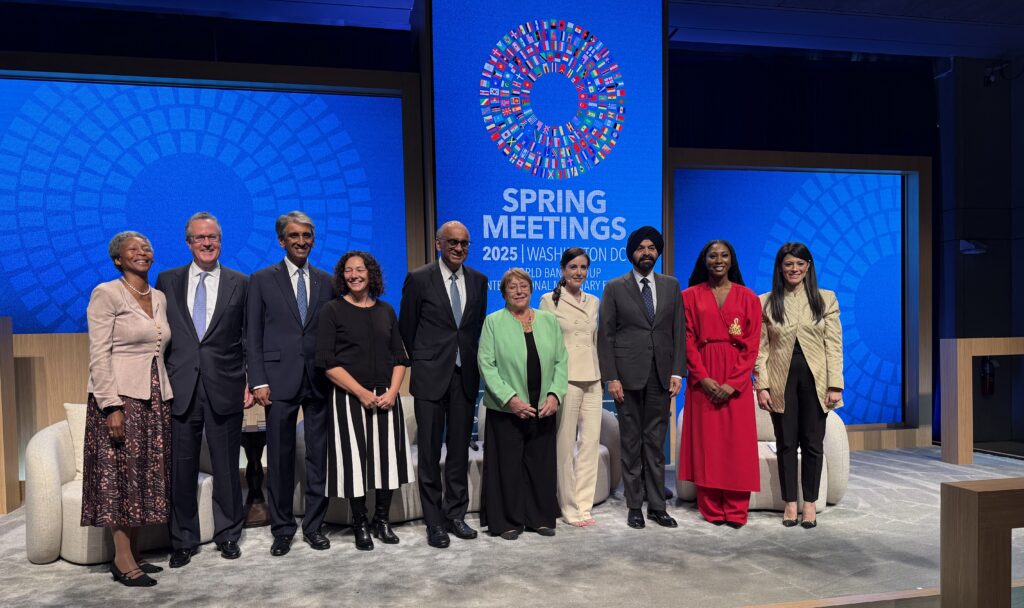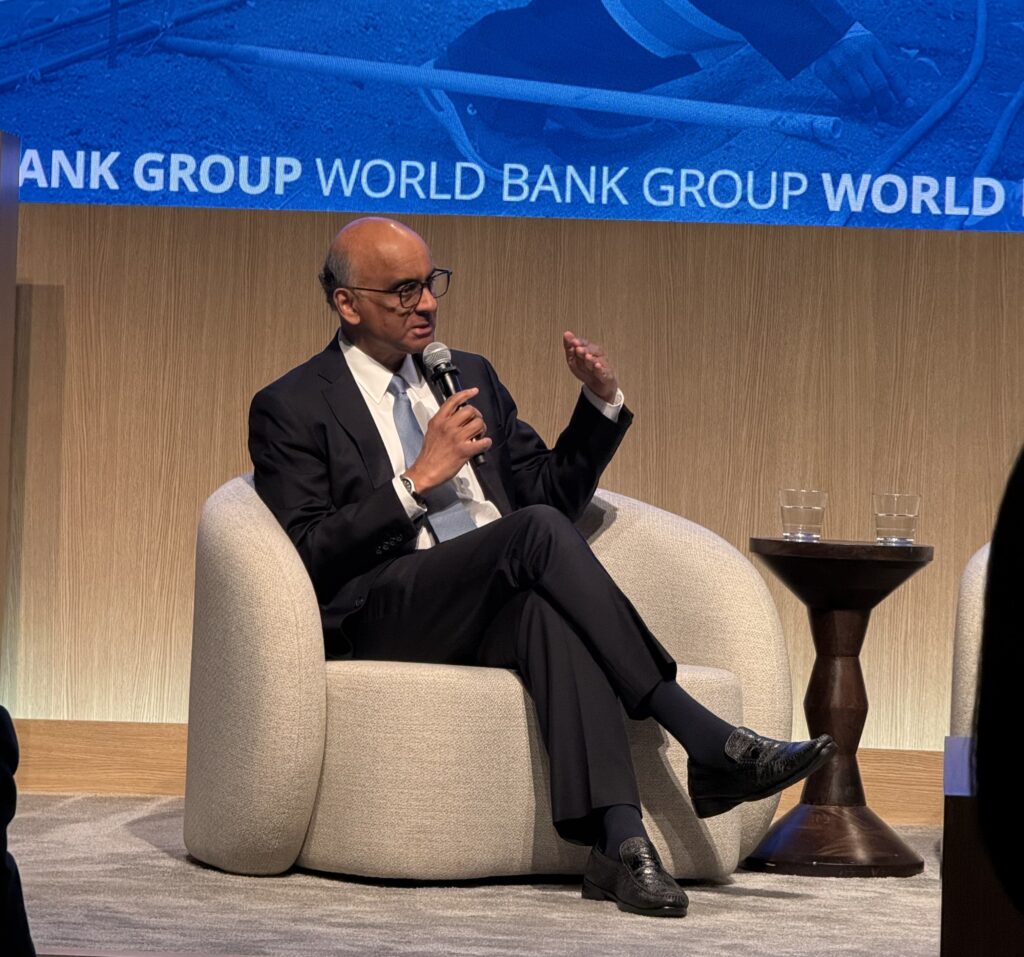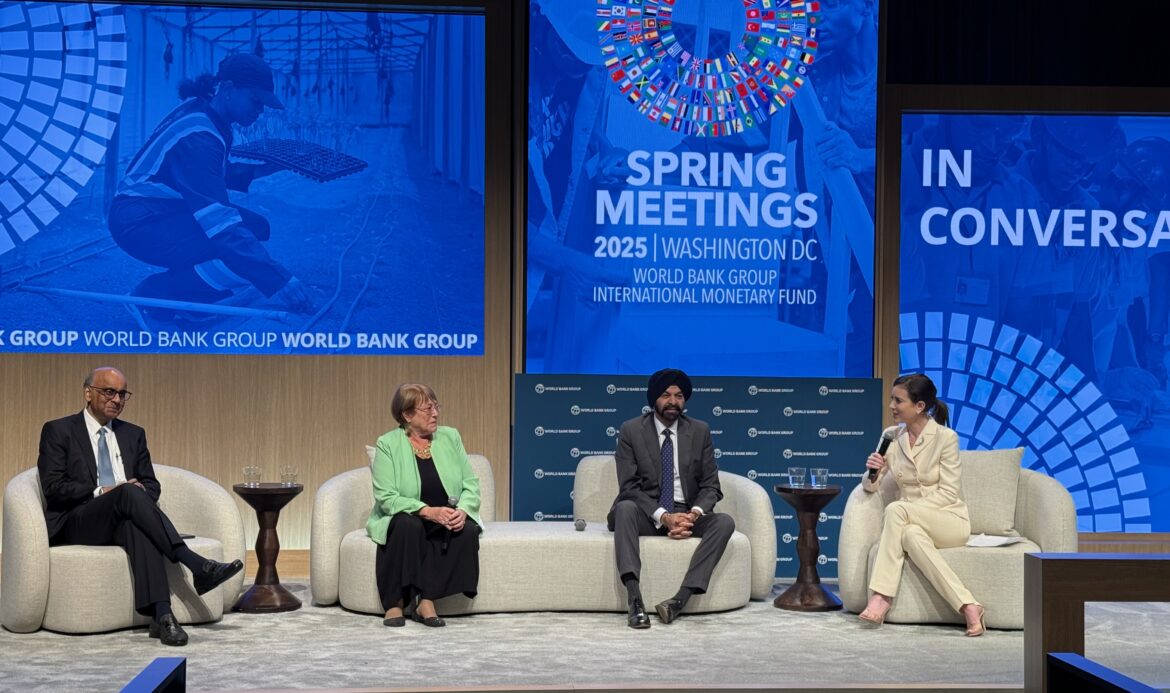The President of the World Bank Group, Ajay Banga underscored the benefits of lower tariffs, emphasizing that they are “good for everybody,” and highlighting the growing significance of bilateral and regional trade among developing nations over the past decade.
Banga made these remarks during a high-level panel discussion at the World Bank’s flagship event titled “Jobs – The Path to Prosperity,” during the 2025 Spring Meetings of the World Bank and International Monetary Fund. The event, held at the World Bank’s Preston Auditorium on April 22, 2025, in Washington DC, featured World Bank President Banga, President of the Republic of Singapore, Tharman Shanmugaratnam, and former President of Chile Michelle Bachelet. It was moderated by journalist Julia Chatterley.
“Look for the last 10 years, if you look at the number of bilateral and regional trade deals being signed in the world, they are way in excess of what most people are paying attention to,” Banga noted.
Referencing trade partnerships such as the Comprehensive and Progressive Agreement for Trans-Pacific Partnership and the Regional Comprehensive Economic Partnership – mentioned earlier during the event by President Shanmugaratnam – Banga stressed that these agreements have reshaped trade dynamics among participating nations.

Addressing the issue of global job creation in a period of uncertainty, President Shanmugaratnam pointed to the sluggish pace of economic growth since the global financial crisis.
From the global financial crisis to 2020, he noted that “the pie has been growing very slowly, and it’s sort of natural that when the pie grows slowly, the arguments get a little sharper as to who’s taking the larger slice of the pie,” he said.
“Our challenge and our ambition have to be to grow the pie. Our challenge and ambition have to be to grow the global middle class,” he added, emphasizing that expanding the global middle class by one billion people in the next five years is not merely aspirational, but a real and achievable goal – especially within the developing world.
He cited compelling statistics such as 600 million young people are expected to enter the global workforce over the next five years, increasing to 800 million by 2035. Over the next 25 years, an estimated 600 million will be better trained than their predecessors.
“We have people who are already in the workforce, eking out a living or in the lower middle-income group who are desperate to become middle income. But there’s a very real possibility now of adding a billion people to the global middle class,” he added. “Imagine what that does to the global consumption pie. It grows the pie for everyone, and we can achieve it, which is what we’ve been talking about from this council.”
He mentioned that World Bank has been actively exploring strategies to enable upward mobility through job creation and skills development for rich and poor countries.
Banga noted that the World Bank has identified five key sectors with high potential for job growth: infrastructure, agriculture, primary healthcare, tourism, and manufacturing.

On the topic of technology and its impact on employment, President Shanmugaratnam drew laughter when he quipped, “Just give me 20 seconds to ChatGPT to get the answer.”
He continued on a more serious note, stating, “We don’t know in advance whether the displacing effect of AI is going to be larger than the way it augments human skills and abilities.” He stressed that the outcome depends on how AI is applied.
He highlighted the transformative potential of “small AI” in boosting productivity across various sectors in the developing world, especially in agriculture. Technologies that enhance soil health, precision irrigation, and fertilization could help lift communities out of low-productivity traps.
“First get them out of that trap of low value agriculture and the technologies now, little counter intuitively allow us to do it far better than we were previously able to,” he said.
President Shanmugaratnam also addressed the economic impact of gender disparities, calling the underutilization and undertraining of women “the largest potential loss of economic growth that the world has to date.”
“Much of it is in the developing world, but I would say there are also problems in the advanced countries,” he added.
President Bachelet echoed these concerns, urging governments to invest in childcare and disability care services to enable more women to enter the workforce. She also called for pay equity and greater visibility of women in leadership roles across both public and private sectors.
Banga revealed that the World Bank is currently evaluating its own compensation structures to ensure equal pay for equal work.
“I think that’s a really important thing. I saw this in my prior private sector life as well. It is not easy to do it,” he added. “The challenges are plenty, but doing it is the most important thing you can do to change the culture of an organization – to go from saying that you have to do something to advantage people, to say you don’t need to do anything, it’s just the way it should be.”






